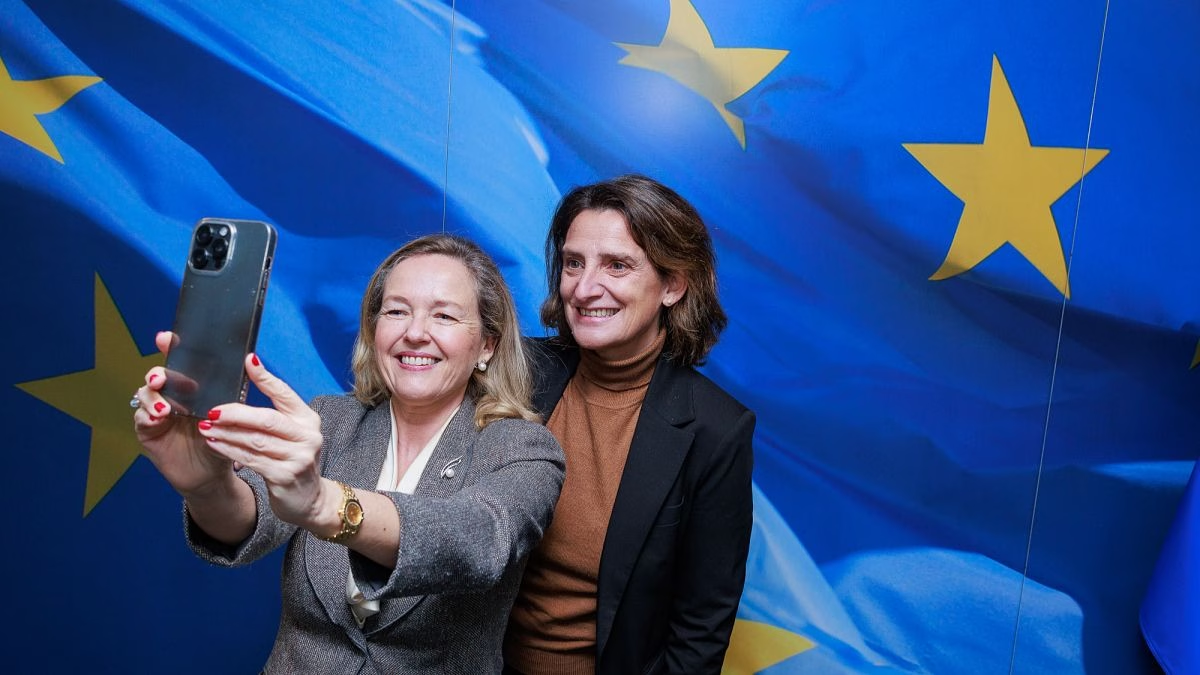The European Commission has taken steps to ensure the security of its staff traveling to the US by providing them with burner phones and basic laptops due to concerns about electronic surveillance, as reported by the Financial Times. The US has been added to a list of countries, including Ukraine and China, where such concerns are high.
In light of rising geopolitical tensions, this article explores the technology tools and online platforms that are being used by politicians across Europe and those that have been blacklisted.
TikTok
Last year, the European Commission, along with the European Parliament and Council of the EU, banned TikTok on professional devices of EU officials. This decision was based on cybersecurity and data privacy risks, with accusations that the Chinese government is collecting sensitive information. EU institutions and agencies including the European External Action Service and the European Court of Auditors followed suit. EU officials were also strongly encouraged to remove the app from their personal devices. Despite TikTok’s defense of its independence, concerns over data privacy persist.
Additionally, allegations of Russian interference in the 2024 Romanian presidential election have complicated the future of TikTok in the EU, with the European Commission launching an investigation into the platform for potential breaches of the Digital Services Act (DSA).
Telegram
Telegram, a Russian messaging app, is not banned in the EU, but it has faced criticism for its role in various criminal activities such as fraud and terrorism. Dutch MEP Bart Groothuis has expressed concerns about the app’s security due to its Russian origin and the potential for the Russian state to have access to users’ data.
Groothuis advised that it would be unwise for civil servants, ministers, or senior politicians to have such apps on their private phones. Several countries, including Switzerland and the Netherlands, have imposed restrictions on its use due to cyber threats and the spread of disinformation.
AI tools
Recently, the European Commission issued guidelines prohibiting the use of “AI agents” during web meetings, due to concerns over whether these tools represent a security threat. “AI agents” are software programs that can make autonomous decisions and perform tasks by learning from data and interacting with other applications. It remains unclear whether these tools pose a risk to the European Commission, which declined to comment on the matter.
Huawei
The Huawei scandal, involving charges of bribery and corruption against EU lawmakers, has cast a shadow on the use of the company’s devices. Former EU Tech Commissioner Andrus Ansip has warned against “backdoors” installed by Huawei. As a result, the Commission has recommended that member states diversify their 5G vendors and has itself banned the equipment from its internal telecommunications. EU officials are not allowed to use personal Huawei phones for business purposes.
A ban on the use of Facebook pages for public institutions previously arose due to concerns regarding the security of EU-US data transfers. Germany’s federal privacy watchdog has advised against the use of Facebook, suggesting it is not in compliance with the General Data Protection Regulation (GDPR). In 2023, the Dutch data protection authority advised the national government against using Facebook pages due to data privacy issues.
X
Following the election victory of US President Donald Trump, hundreds of thousands of users left Elon Musk’s X (formerly Twitter), including European politicians. They are dissatisfied with the platform’s role in the spread of misinformation, conspiracy theories, and hate speech, as well as Musk’s support for Trump’s return to power. While major institutions and cities have switched to platforms like Bluesky, most politicians continue to use their X accounts.
Strava
The US fitness app Strava was embroiled in controversy after it was found that journalists could track the movements of high-profile officials by analyzing jogging routes of their security details. This exposed sensitive information such as home addresses and workplaces. In response, the Ministry of the Armed Forces issued internal guidelines warning against the security risks of using such apps and reminding officials to follow operational security rules. Despite these warnings, the app was implicated earlier this year when Navy personnel accidentally leaked classified details about submarine patrols via the platform. Usage of the app is still officially authorized for politicians and their security teams.
Source: https://www.euronews.com/next/2025/04/24/from-tiktok-to-ai-what-the-eu-now-calls-a-security-threat





